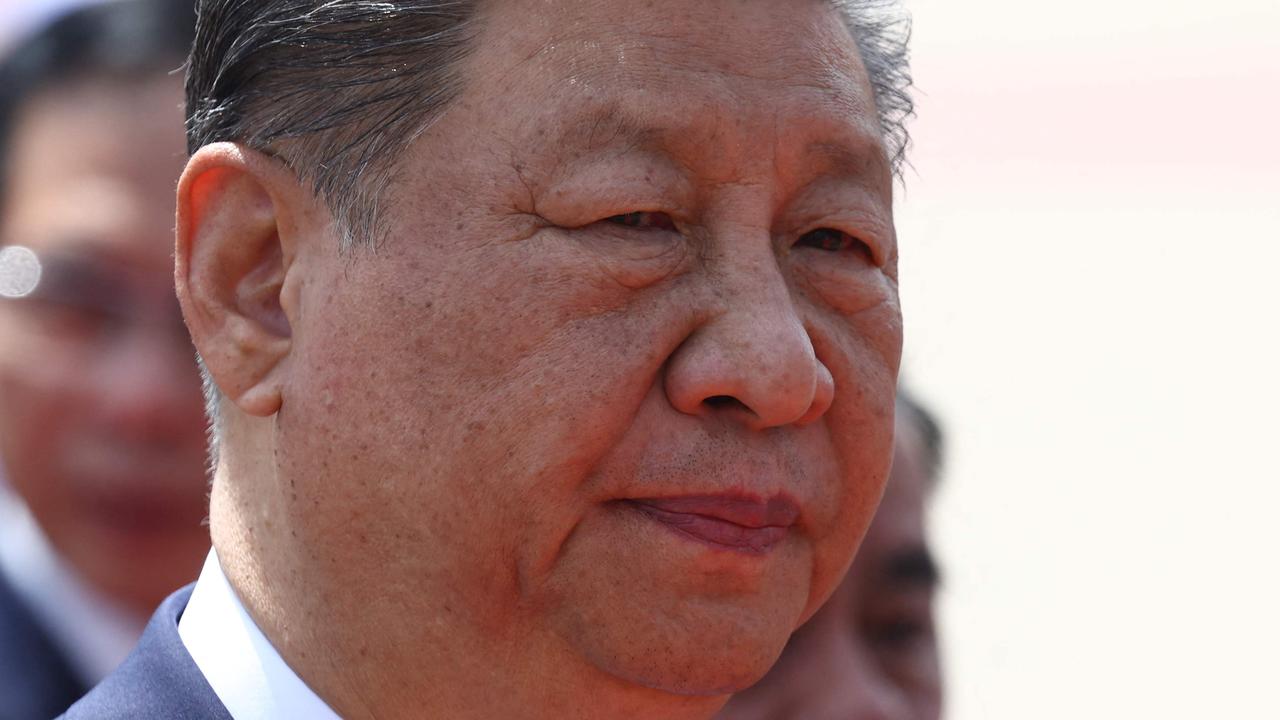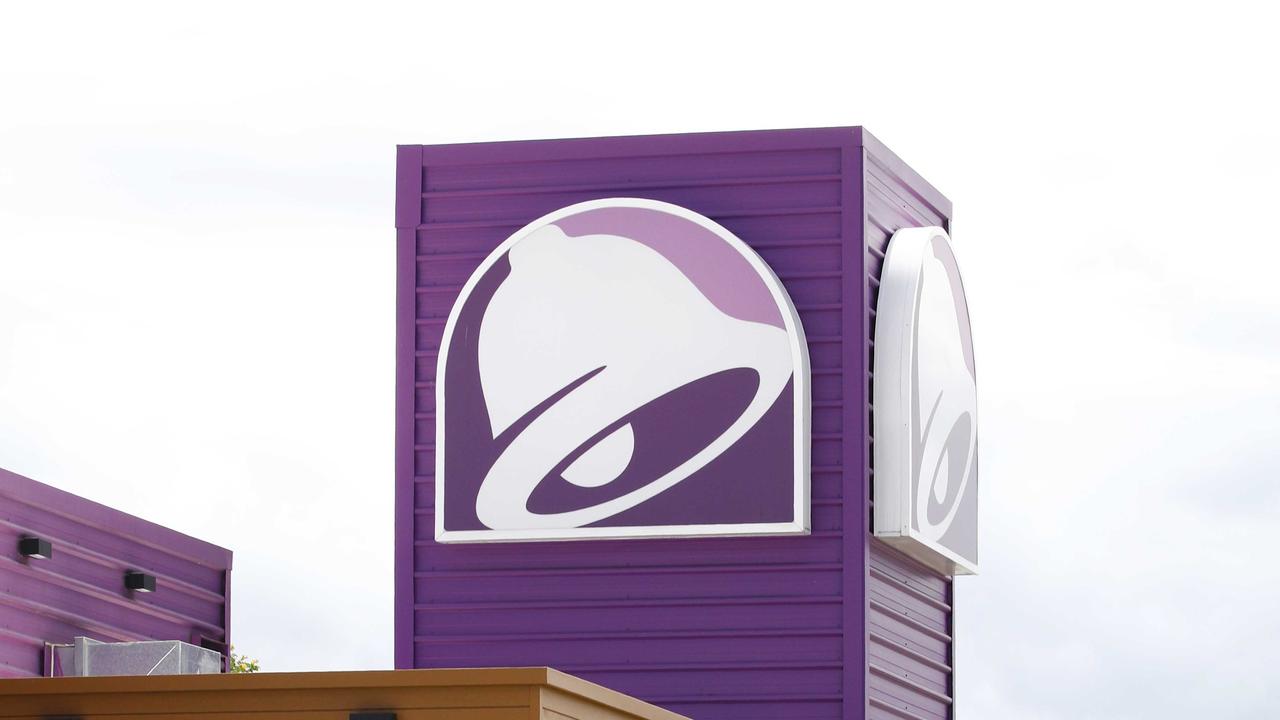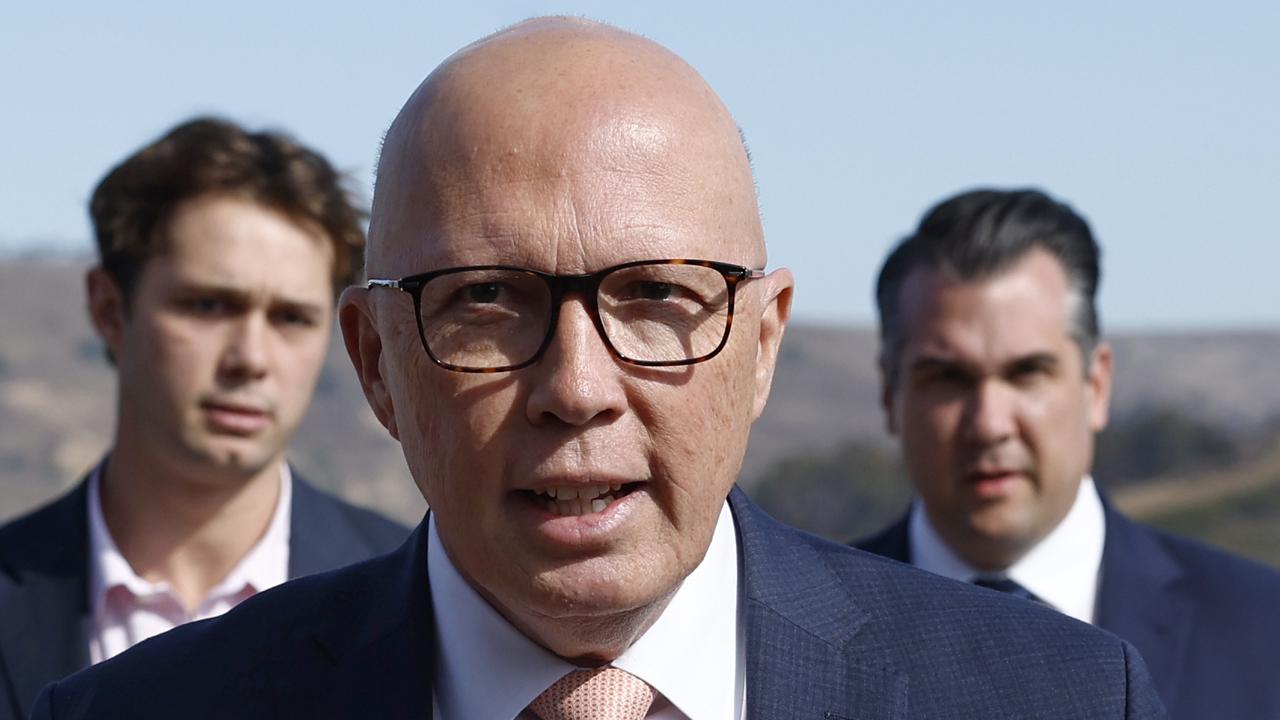Is China about to overtake the US as the world’s superpower?
AMERICA has been on top of the world for decades. Its military, economic and cultural power has been undisputed. But is that all about to change?
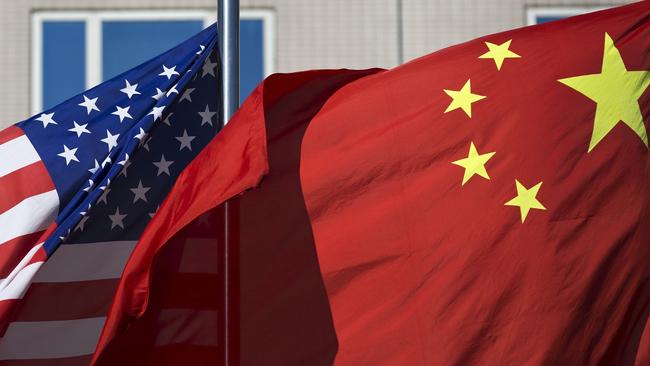
DESPITE the changing nature of international geopolitics, there will still be a global superpower.
In the back half of the 20th century, the US emerged as an economic, military and cultural behemoth which stared down the USSR after a decades-long rivalry to finally claim the title of the biggest kid in a big playground.
And so it has been for a quarter of a century.
But in the last few years, the narrative has shifted to include a new contender for the crown. In this so-called Asian Century, the scenario where China becomes the pre-eminent player in the global power game is becoming less a matter of ‘if’ than ‘when’.
Chinese President Xi Jinping today addressed Parliament on the landmark China-Australia Free Trade Agreement, which will bind our two countries together for years to come.
His messsage was one of peace and increased cooperation, but it carried a warning that growth now depends on good relations with China, “the big guy in the playground”.
THE CASE FOR CHINA
On an economic level, at least one indicator says it’s already happened. The International Monetary Fund released a report last month that showed that China has surpassed the US as the world’s biggest economy. The IMF estimated the Chinese gross domestic product this year will be $US17.6 trillion, compared to the US’ $US17.4 trillion.
However, those GDP figures were calculated based on purchasing power parity (PPP), which is designed to account for different prices in different markets. For example, $US100 buys a lot more in China than it does in America. Without adjusting for PPP, the IMF estimated China’s raw GDP to be closer to $US10 trillion.
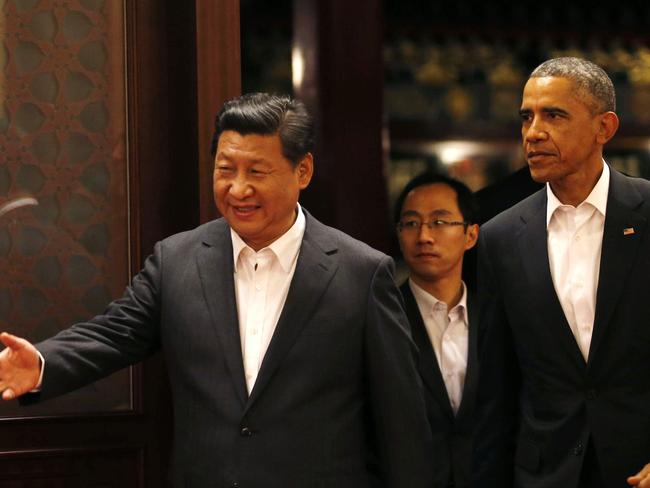
In September, The Telegraph UK reported analysts at Deutsche Bank predicted China would account for a larger share of the global GDP than the US within five years. “Given this analysis, it strikes us that today we are in the midst of an extremely rare historical event — the relative decline of a world superpower,” Deutsche Bank’s Tim Reid said in The Telegraph.
Deutsche Bank also pointed out that on a PPP basis, the US’ share of world output has dropped below 20 per cent, which historically has been the tipping point of whether a country or empire has been considered a global superpower. In the past, the British and Roman empires, at the peak of their dominance, accounted for greater that 20 per cent share.
Around the world, people have adjusted their views of the dynamic between the two biggest economies. Think tank Pew Research Centre’s Global Attitudes Project surveyed citizens all over the world and found that 49 per cent of respondents agreed that China will or has already replaced the US as the superpower. Thirty-four per cent said China will never replace the US as the superpower.

Those in Europe, the Middle East and Latin America were more likely to respond in the affirmative. Spain had the highest number of respondents (67 per cent) which believed China will or has replaced the US, followed by the British (62 per cent) and the French (61 per cent).
Even more Americans (49 per cent) believed in China’s ascendancy than those that thought the US wouldn’t be replaced (45 per cent).
Based on these statistics, it seems inevitable that the US’ top position is soon to be China’s top position. But, as always, the situation is more complicated than a simple set of numbers.
CHINA’S CHALLENGES
Laurie Pearcey, director of China strategy and development at the University of New South Wales and the former chief executive of the Australia China Business Council, told news.com.au that, by most indicators, he expected China would probably overtake the US by halfway through the next decade.
“Although I think that’s going to be, in many respects, dependent on how the Chinese leadership addresses the structural challenges confronting the economy,” Mr Pearcey said.
Mr Pearcey said those structural challenges included an economy that is vastly dependent on infrastructure investment and that roughly 47 per cent of China’s GDP is controlled by state-owned enterprises.
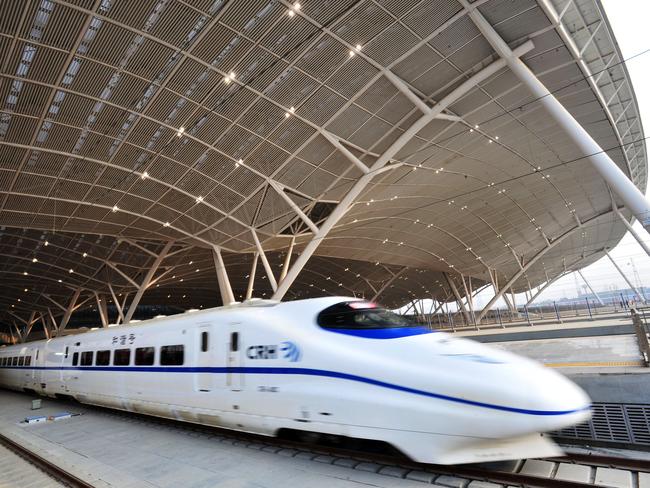
Mr Pearcey said China’s other challenges included how market forces will play a decisive role in the allocation of resources in the economy; how it’ll allow private players to invest; as well as the shadow banking sector and how credit moves around the economy. Also at top of mind is the future of China’s property sector and continued speculation around whether a bubble really exists.
He said China’s government’s has long abandoned the myopic pursuit of double-digit growth. Earlier this week during the APEC conference, Chinese president Xi Jinping reiterated that China is shifting to a ‘new normal’ of steady and stable growth. China’s economy grew by 7.3 per cent in the last quarter while the IMF said the country should aim to lower its growth to no more than 7 per cent.
Mr Pearcey said: “If China can maintain growth between 5 and 7 per cent in the next few years, I would say that the Chinese economy has a really good shot of overtaking the US.”
US NOT DOWN FOR THE COUNT
Bates Gill, chief executive of the US Studies Centre at the University of Sydney, is less convinced of China’s ability to overtake the US any time soon.
“PPP figures are only one way of understanding a complicated picture,” he said. “In the same breath, you can say that on a per capita GDP basis, China ranks much lower.” The World Bank’s 2013 GDP per capita figures rank China 84th out of 189 states while the US is 13th (Australia is seventh). The same figures also put China’s GDP per capita at only 12.8 per cent of the US’ GDP per capita.
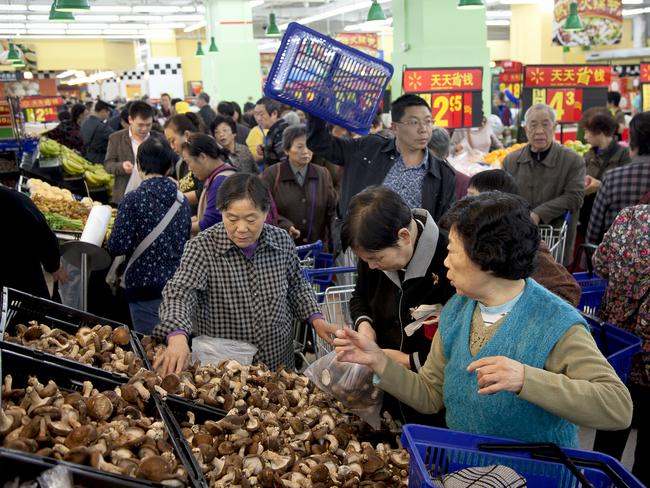
“Yes, as a whole economic entity, China is large,” Mr Gill said. “But at the micro-economic and individual household level, it’s still a poor, developing country. The Chinese would be quick to acknowledge that themselves. They would dismiss the PPP numbers because they’re not comfortable laying claim to be the world’s biggest economy, which would come with a lot of responsibilities.
“PPP doesn’t accurately reflect the true power of the Chinese economy as it related to domestic circumstances.”
China’s resurgence — China previously held a lion’s share of global GDP until the industrial era — as an economic power will also depend on the strength of the US economic recovery, which has only started to take hold this year with encouraging jobs and building figures.
CHINA’S 1.3 BILLION CONSUMERS
However, Mr Pearcey said one significant advantage China has over the US is the low household debt of Chinese consumers. A culture of fiscal discipline and saving means the ordinary Chinese consumer will be sitting on money hidden away in bank accounts and under mattresses than US consumers, who, as the subprime crisis illustrated so tragically, are more likely to accumulate personal debt.
“As the Chinese move to encouraging economic growth driven by consumption rather than infrastructure investment, [GDP per capita] is going to emerge as a real challenge,” he said. “[The amount of ordinary consumers’ savings] is a great cause for optimism.”
Mr Pearcey said as land reform occurs and several hundred million members of China’s rural population gains access to credit, then it will be easier to unshackle consumers from their stashes of savings. “They’re going to be able to go in there with a huge deposit and pay it off significantly faster than any OECD economy.

“And then if there is a financial collapse or global recession, as some have predicted, it will impact both countries but it will be less of an issue in China than in the US.
“Once we can unlock the significant spending power of Chinese consumers and see greater traction in spending that is going to address some of the PPP issues than can hamper a spectacular rise.”
MILITARY MIGHT
Mr Gill pointed out that when you’re talking about comprehensive national power, you need to look at other attributes as well. “One that is comparatively easy to measure is military power. China has made significant strides, not least as a result of rapidly growing defence expenditure, but it’s far from being a global power. It has no overseas bases or alliances, other than North Korea, to speak of. It’s not the same as the US or the UK.
“It doesn’t have the type of power projection capability to insert itself militarily in any part of the world.”
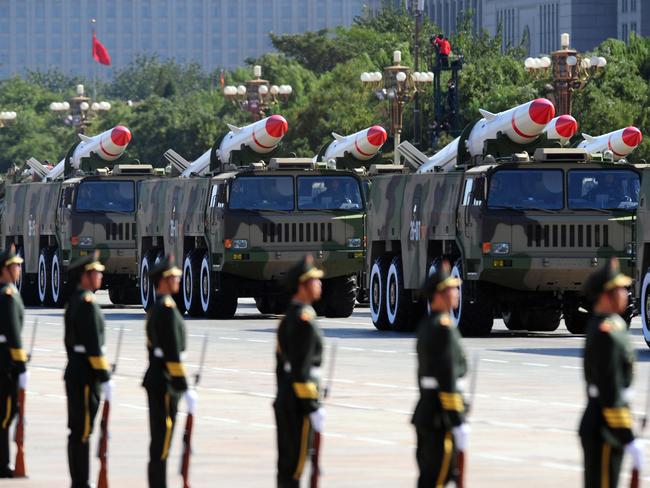
Mr Pearcey countered: “I think you have to ask yourself the question whether the Chinese government desires military dominance? My answer would be on a global scale, China doesn’t necessarily want force projection capability. That doesn’t mean they won’t wake up tomorrow and decide to go off and do it. But I don’t think that’s part of their development priority. They are keen on maintaining a competitive edge in Asia Pacific.”
In March, the Chinese government announced its defence spending this year would be $US132 billion, a 12.2 per cent increase on the previous period. An analysis in The Economist suggested the real growth figure could be as high as 40 per cent. In contrast, the Pentagon outlined the US’ defence spending is likely to be relatively flat or declining over the next five years. But the US’ defence spending is still roughly three times as much as China’s.
China’s defence spending has alarmed its regional neighbours — particularly Japan and the Philippines — with which it was territorial disputes. But a meeting this week between Xi Jinping and Japanese prime minister Shinzo Abe is a significant step forward for the two traditional rivals. The two pledged to further dialogue and committed to a relationship that would have mutual strategic benefits.

SOFT POWER
Where the US continues to excel in projecting its global dominance has been its ability to wield its soft power. There are few places around the world that wouldn’t recognise the neon glow of the McDonald’s arches, the bright red iconography of Coca-Cola or the faces of famous American movie stars.
Its elite universities are recognised everywhere with the most affluent and aspirational Chinese families clamouring to enrol their children into the Ivy League.
It’s fair to say that when it comes to the soft power stakes, the US is still number one.
However, China and its products have increased its cache on the global market. While everyone worships the Apple iPhone, those same consumers also know that it’s made in China. Home-grown brands Lenovo, HTC and Tsingtao are gaining traction globally while the likes of Yao Ming, Li Na and Jack Ma are just as respected as their contemporaries from Western countries.
“The Chinese government has invested significantly in improving its reputation around the world in the last decade,” Mr Pearcey said.
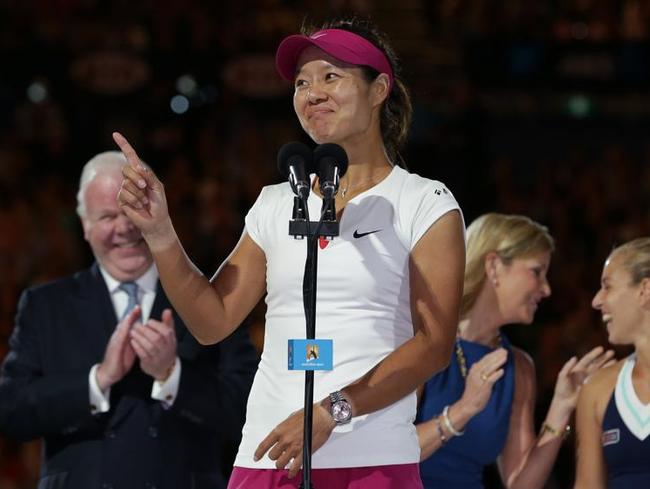
He pointed to the establishment of hundreds of Confucius Institutes around the world, including the one at UNSW, of which Mr Pearcey is the director. Confucius Institutes, attached to universities, are associated with the Chinese government through its Ministry of Education and seeks to advance Chinese culture and language globally.
The Confucius Institutes cost hundreds of millions of dollars to run (the exact figure is unknown) and is seen as an important plank in Chinese soft power. While they have come under some criticism for its government association, Mr Pearcey said: “China doesn’t go around the world and set them up. There needs to be willing joint venture partners. It’s not soft power by coercion. It’s part of a global readiness in engagement.”
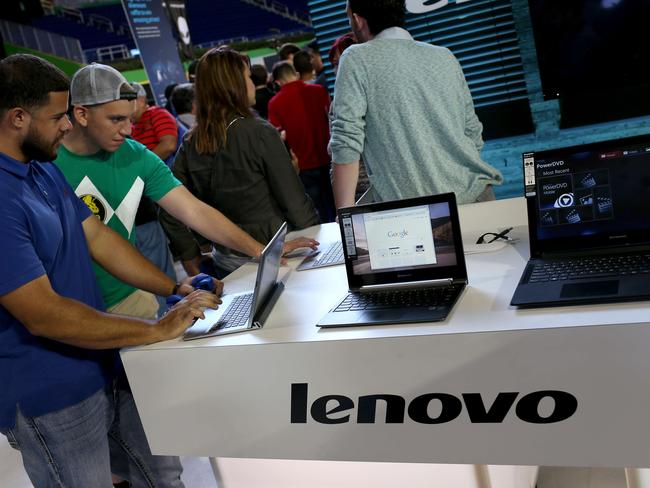
But Mr Gill doubts China has managed to charm the world yet.
“One way to think about soft power is whether someone is able to get others to do what it wants without coercion. It’s the power of attraction,” he said. “It would be fair to say that there are few countries in the world that would want to adopt the Chinese model of social economic and social political governance and development.
“All countries would love to see 8 per cent growth but at what cost? There’s enormous environmental degradation and it’s managed to alarm much of its immediate neighbourhood about its long term intentions.
“China has not succeeded in its intention to position itself as a peacefully rising power; it has not demonstrated its position in a harmonious world. Despite its best efforts, its soft power campaign has fallen short.
“China is unlikely to overtake the US in our lifetime.”


